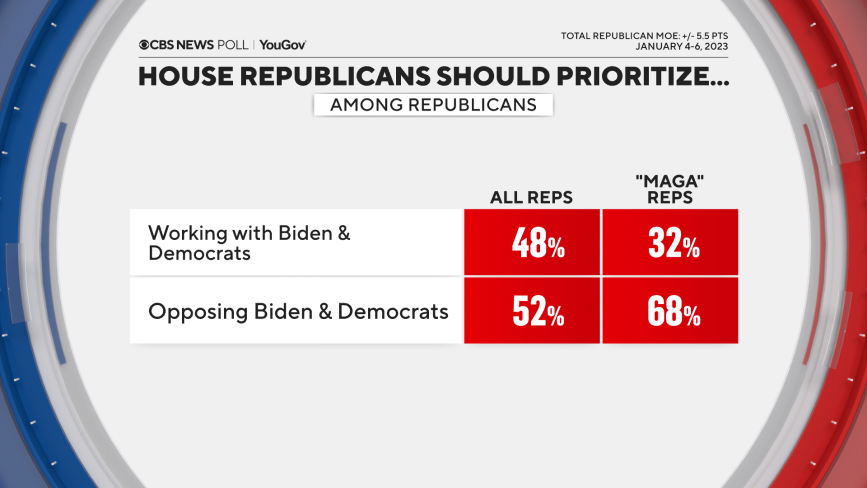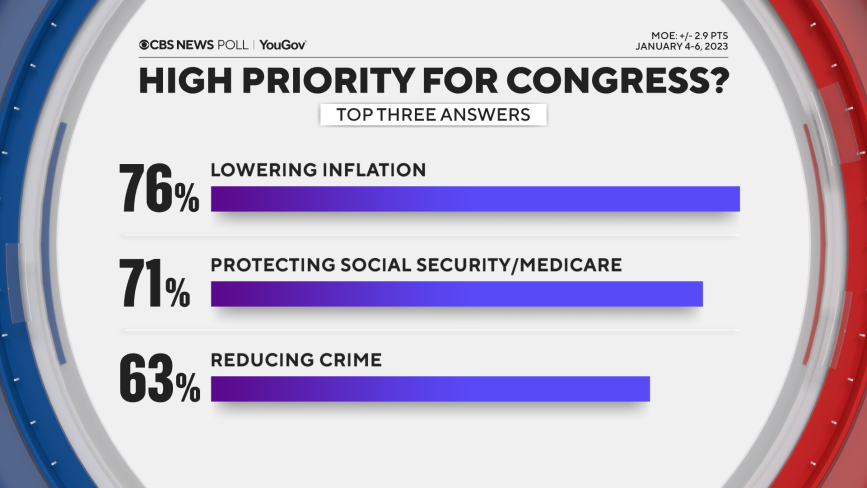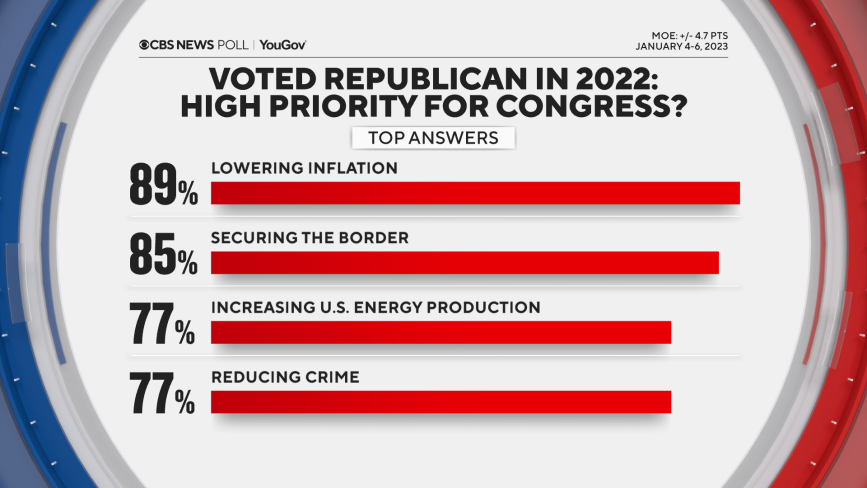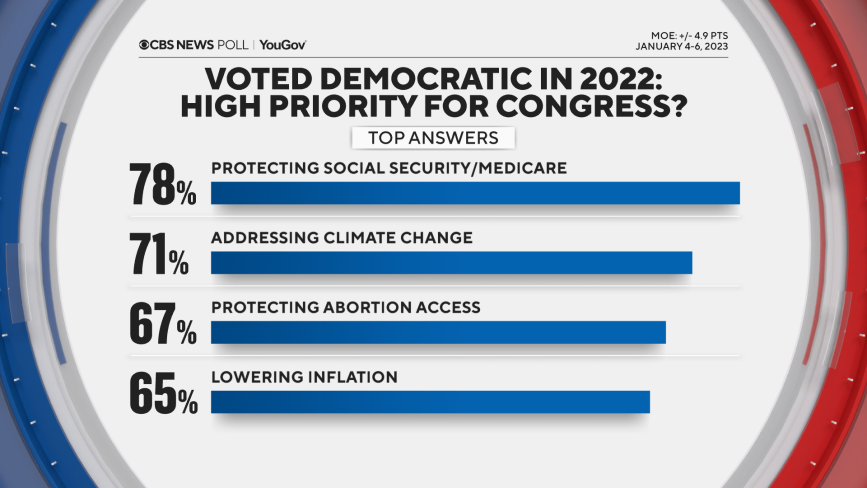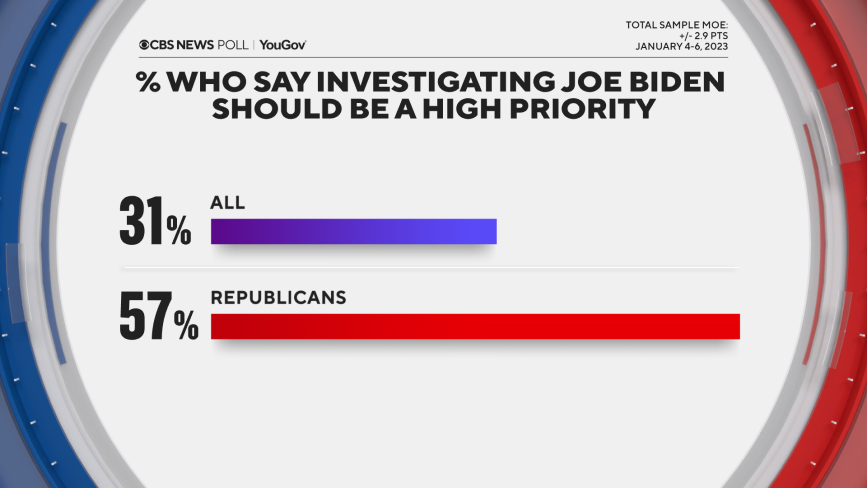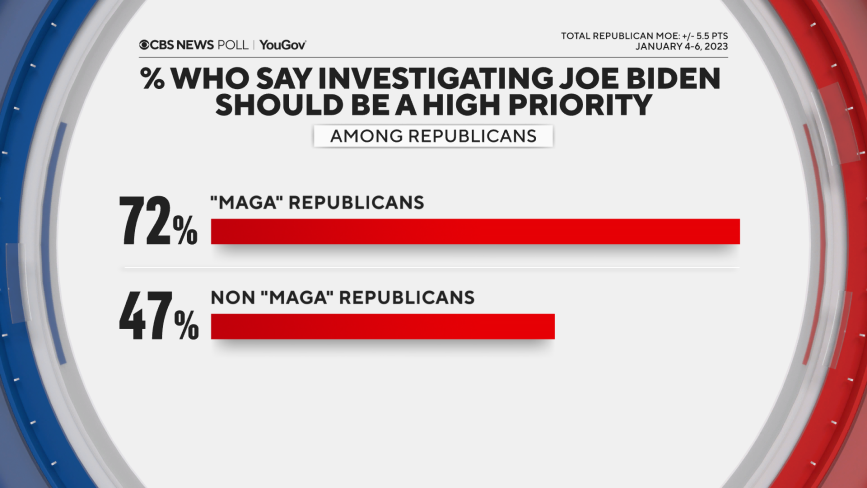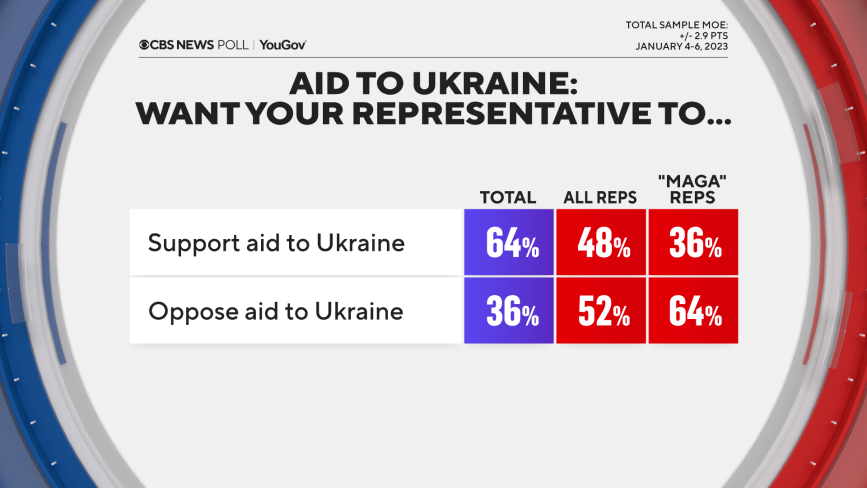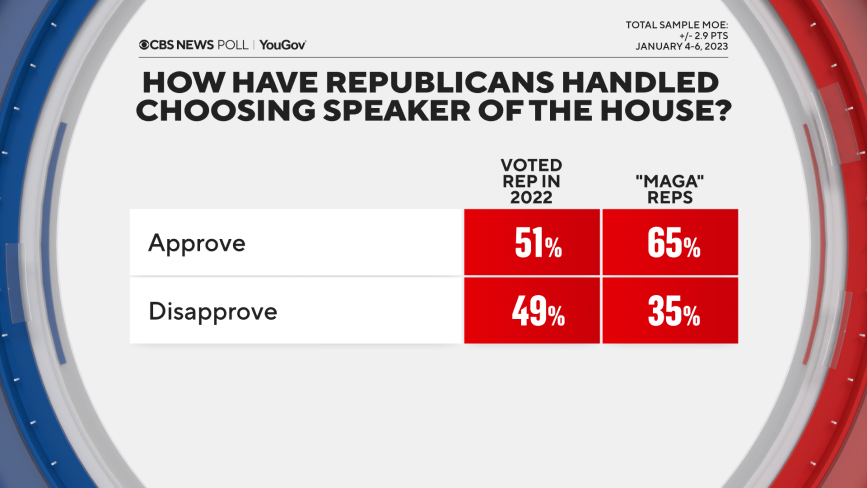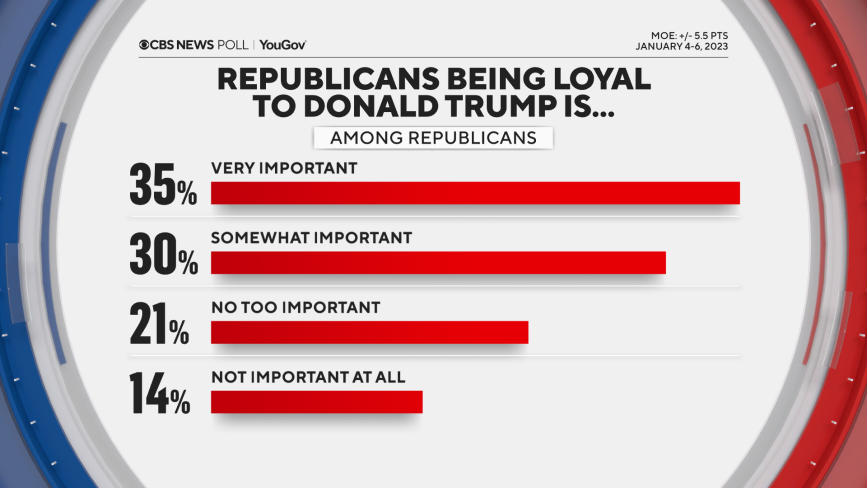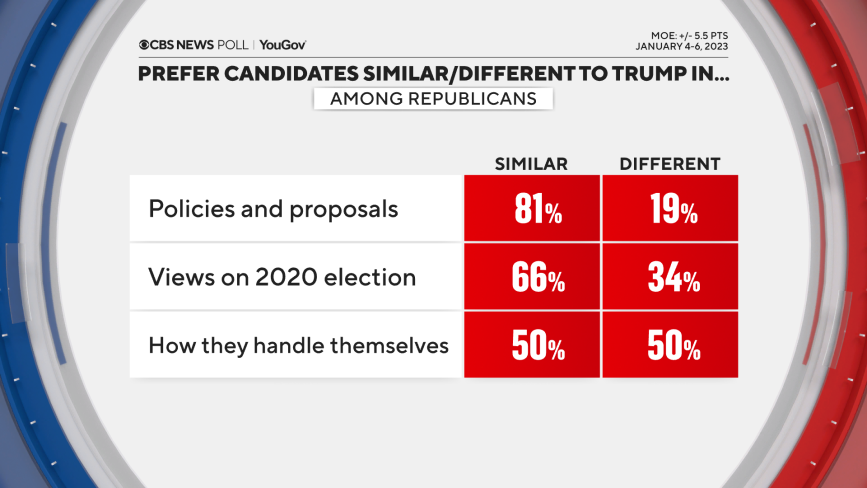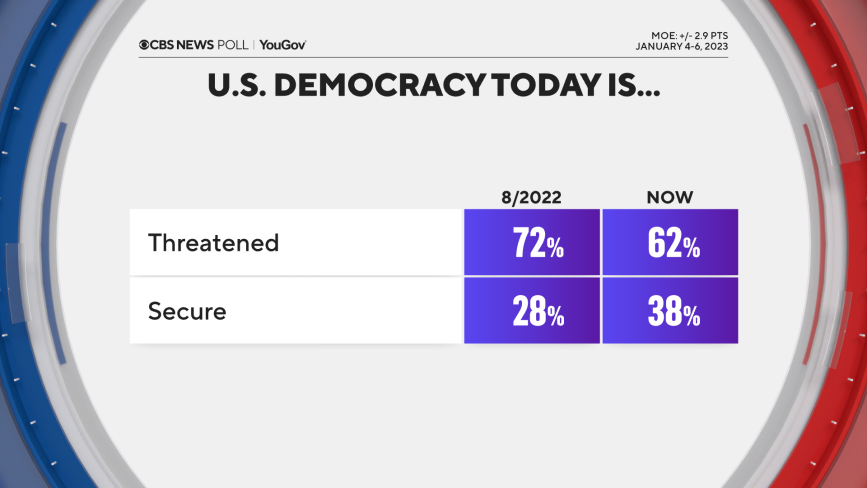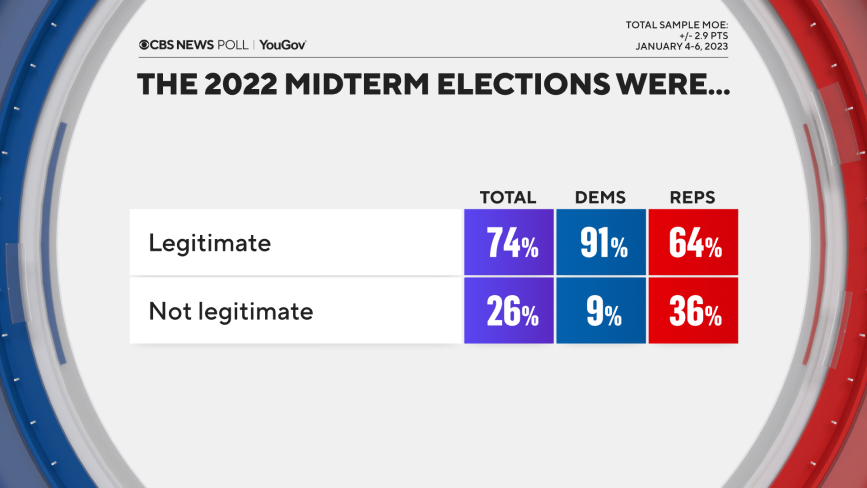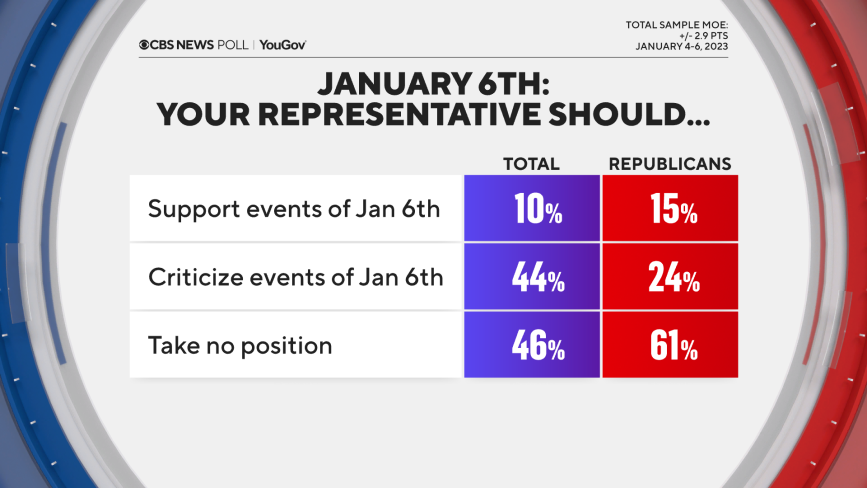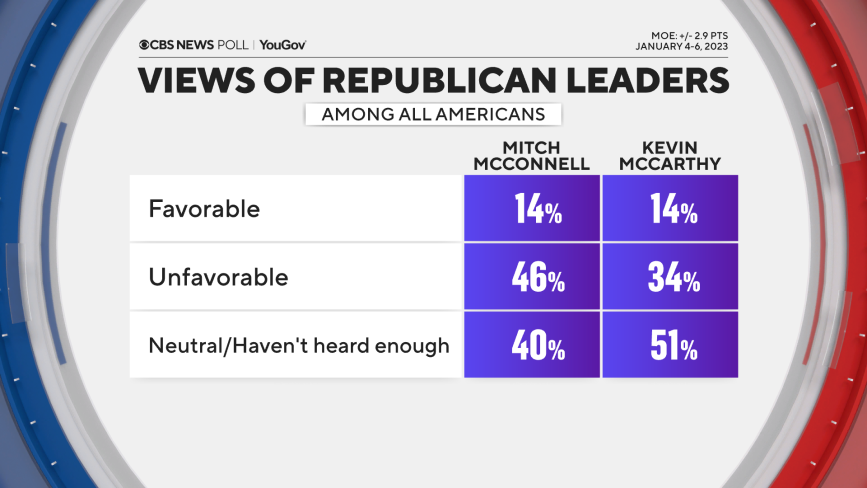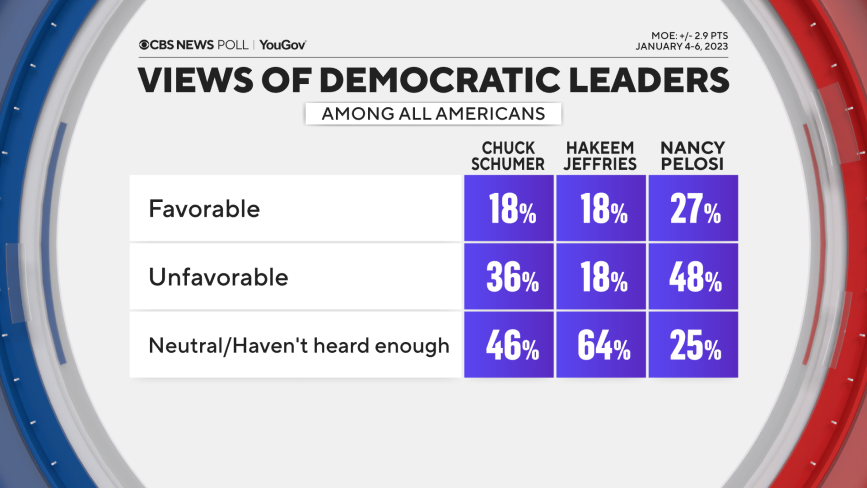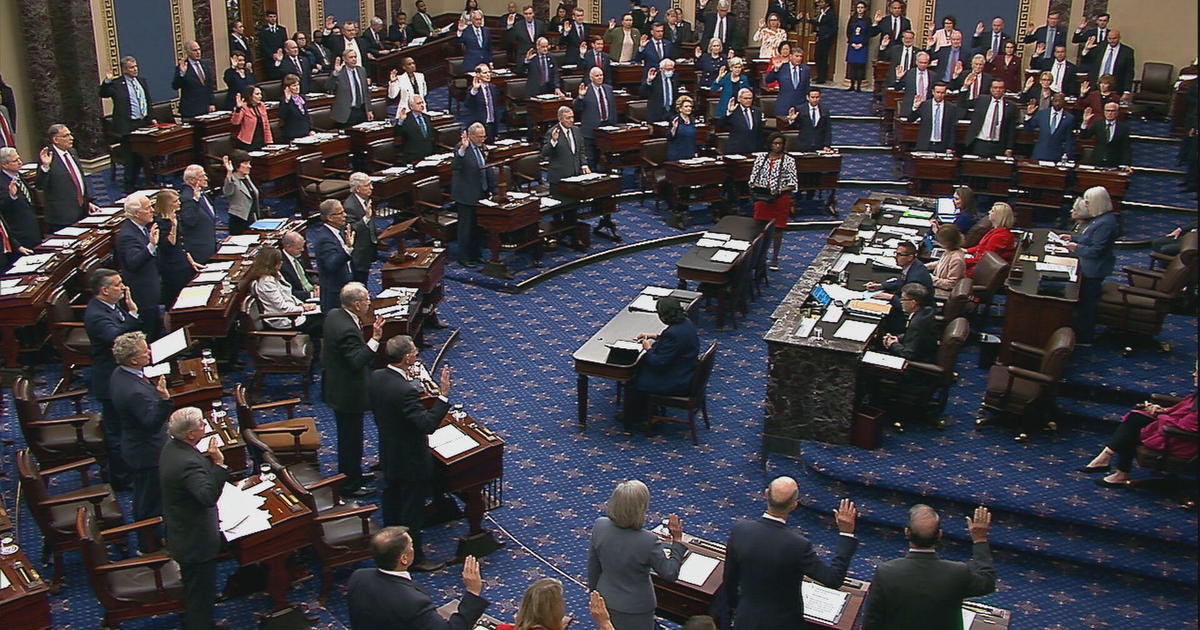CBS News poll: Inflation, cooperation and…investigation? Americans on what the new Congress should — and shouldn't — deliver
Inflation remains a concern, and Americans across the political spectrum want Congress to focus on it, amid the usual calls for bipartisanship from most of the nation. We also see splits within the Republicans' rank and file over how to best use their newly minted House majority, through cooperation or investigation, and on the impact of "MAGA" Republicans.
For starters, big bipartisan majorities say Congress should address inflation, reduce crime, and protect Social Security and Medicare.
But how to get there? Almost half of Republicans want their House delegation to work with Democrats on matters where they can find common ground, at least in principle. The other half want House Republicans to focus on stopping President Biden and Democrats. "MAGA" Republicans are especially likely to prioritize opposition, a stance that also puts them apart from Americans' views overall.
Democrats, for their part, strongly want Mr. Biden and their Senate majority to work with House Republicans where they can.
When we look at it by how voters cast their 2022 vote — and whether people might get what they voted for — those who picked Republican House candidates in '22 add U.S. energy production to issues they prioritize, along with securing the border.
Those who backed Democrats, now in the minority, want abortion protections and the climate addressed, too.
Beyond that, over half of today's Republican identifiers also put a "high priority" on the House investigating the president, and also his son, Hunter Biden — especially those who define themselves as part of the MAGA movement. Most Americans, and most non-MAGA Republicans, do not agree.
MAGA Republicans today place an even higher priority on investigating President Biden and Hunter Biden than they do on reducing crime and increasing oil and gas production, issues the 2022 campaign had emphasized. (Just under half of Republicans label themselves as also part of the MAGA movement, as has been the case in surveys over the last year.)
In the year ahead, Congress will need to deal with many issues that could be determined by divisions in a majority party. One example is funding for aid to Ukraine, which a large majority of Americans want their congressional representative to support. But on that, self-identified MAGA Republicans are even more opposed than the rest of GOP ranks.
As the speaker battle went on, the Republican House was getting mixed marks from the voters who backed Republicans in 2022, in interviews before the voting wrapped up late Friday night. But the party base was more positive — with self-identified MAGA Republicans particularly approving.
The Trump factor?
Most rank-and-file Republicans want to see at least some party loyalty toward Donald Trump. That extends beyond just the former president himself: Republicans overwhelmingly want the party to follow Trump's policies and his views on 2020 — so there's been little reassessment on that front since a year ago.
This hasn't changed since the election, despite many of Trump's endorsed candidates and many election deniers having lost in November, and with views of Trump having proved net-negative for voters overall in the midterms.
And regarding views on past elections — views on the state of democracy were also central to the 2022 contest, and concerns remain for most. But the election appears to have at least moved views in a more positive direction, as the idea that it is secure is up ten points from before the fall campaign.
This uptick is driven by more Democrats feeling secure about democracy now.
But that doesn't mean election denialism has gone away entirely.
It's not nearly the level we see with regard to the 2020 election, but Republicans are four times as likely as Democrats to say 2022 wasn't legitimate, either. The ranks of that smaller group are disproportionately composed of self-identified MAGA Republicans, and Trump 2020 voters, who don't believe Democrats won the Senate.
Jan. 6
Two years on, rank and file Republicans still don't want to see condemnation of Jan. 6. Most prefer their representative not take a position either way. That, too, stands apart from Americans overall.
And little has changed with the deep partisan differences after the House select committee investigating the Jan. 6 events recommended the Department of Justice charge the former president. Democrats think the Justice Department should charge Trump with crimes. Republicans don't.
Americans' evaluations of congressional leaders
The new House speaker, Rep. Kevin McCarthy, remains unknown to many Americans (putting him in company with other leaders in that regard). He has a net-negative view among those who do have an opinion but net positive ratings among those in his own Republican Party who do know him.
Over the years, surveys have often shown many Americans either unfamiliar with or not having views on congressional leaders, even those who have served for a long time or who elicit strong views among the partisan. The outgoing speaker, Nancy Pelosi, is very popular with Democrats and unpopular with Republicans, while a quarter of Americans hold neither stance. Four in 10 have no view either way on Senate Minority Leader Mitch McConnell.
Incoming House Minority Leader Hakeem Jeffries is the least known of the political figures asked about, but is favorably viewed by Democrats who do know him.
This CBS News/YouGov survey was conducted with a nationally representative sample of 2,144 U.S. adult residents interviewed between January 4-6, 2,023. The sample was weighted according to gender, age, race, and education based on the U.S. Census American Community Survey and Current Population Survey, as well as to 2020 presidential vote. The margin of error is ±2.9 points.
